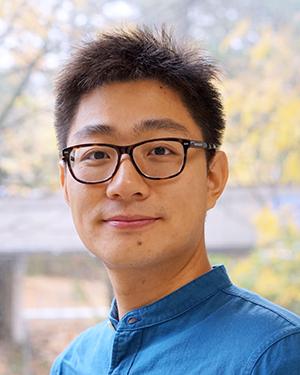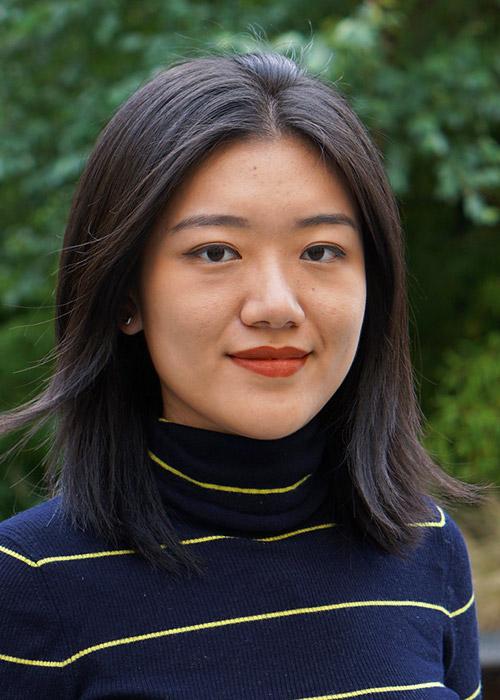UW Biostatistics graduate students took on interesting and challenging internships over the summer, despite workplace limitations due to COVID-19. One of the most valuable things they learned was the importance of strong communications skills.

PhD student Xu (Steven) Wang worked as a data scientist intern at Facebook AI Applied Research where his summer project focused on understanding how a model of complex architecture (e.g. deep learning or ensembles) makes a prediction. He said, “My internship taught me a lot about writing and communication, and specifically, effectively communicating with people with different backgrounds.”

Second year MS Capstone student Xinyi Yan agrees. She worked as a computational biology intern with Bristol Myers Squibb. “During this internship I learned a lot about how to efficiently communicate with my manager, how to reach out to people to build my network, and also how to present my work to audiences with different backgrounds.”

PhD student Subodh Selukar worked on a project at Amgen that uses simulations to study the efficient design of trials for combination therapies. His advice to students entering an internship is to practice consistent communication. “Getting feedback throughout the process, rather than waiting until you are totally stumped or go off in a different direction, means your work is more efficient, and it also shows off your progress and eagerness to do good work!”
Selukar also advises students not to be disheartened if they don’t receive an internship offer. “At the start of my internship search, I thought that the position application was mainly about coming off as a smart, energetic person. But after interviews and the internship process, I realized that fit for the specific internship project is also a major component. Often, specific project details are not provided during the application process, so it is entirely possible to be a fantastic candidate but not receive an offer because someone else just happens to have a profile that is better tailored toward the specific project.”

MS Thesis student Ningxin Ma, who worked as a statistical programmer at Boehringer Ingelheim, also emphasizes the importance of clear communication. “It’s important to keep good communication with your mentor and your team. Talk about the expectations, the workload, and be frank about what you can and cannot do. In general people are willing to help, as long as they clearly know what you need, so don’t be afraid to ask.”
Notes from the Field
Doctoral and master's students share their summer 2020 internship experiences
Yichen Lu
- Program: MS Capstone
- Position: Biostatistics Intern
- Company: Genentech, Inc. South San Francisco, Calif.
- Responsibilities: Product development, early phase, oncology team
Yitao Wu
- Program: MS Capstone
- Position: Analytics Intern within the Data Science Leadership Development Program
- Company: Travelers, St. Paul, Minn.
- Responsibilities: My responsibilities were to evaluate third-party data using statistical methods. In short, we wanted to see if there was any pricing lift when we included selected variables into Travelers current pricing models. I worked on the evaluation process and also provided guidance for modelers to improve the current pricing.
Xinyi Yan
- Program: MS Capstone
- Position: Computational Biology Intern
- Company: Bristol Myers Squibb (pharmaceutical company)
- Responsibilities: The primary part of my job was developing a new version of the R package called ADAPTS, which helps deconvolve bulk RNAseq samples by building custom signature matrices out of single cell RNAseq data. I have also applied this package on several public datasets and presented the results as public available vignettes.
- Advice: The advice I would give is that you should always be eager to learn new things, think ahead and dive deep. I would have liked to have had an opportunity to follow up more with some of my applications. I did miss an opportunity because they couldn't reach me through my email.
Ningxin Ma
- Program: MS Thesis
- Position: Statistical Programmer, Biostatistics and Data Science Department
- Company: Boehringer Ingelheim, Ridgefield, CT
- Responsibilities: Our team works on statistical analysis of clinical trial data, and helps make decisions in early phase of drug development. It’s definitely a new experience compared to academic work, and I got to see the other side of the story of drug development: instead of working on the same project for 3 years with a few lab mates, I collaborated with doctors, pharmacists, statisticians, and programmers over a few months to promote the development of a new drug.
- Advice: There are a lot of uncertainties about internship: the job description may not fit the actual requirement, and you don’t know what HR is really looking for. It is natural and totally okay to feel frustrated, but try to overcome the self-doubt and look at it as a mutual selection. You’re interviewing the team / company as they’re interviewing you, and this whole process is to help you know the field and find your unique niche.
Sixuan (Cheri) Wu
- Program: MS Thesis
- Position: Part-Time Software Engineer
- Company: Inspur, Bellevue, Wash.
- Responsibilities: Our team mainly focus on research/proof of concept in the machine learning (mostly deep learning) area. For example, one of the projects we did was to use a neural network to deal with a data imbalance problem in medical image (e.g. cancer) in order to improve overall model performance on classifying tumors or lesions.
Xinyuan Dong
- Program: PhD
- Position: Data Scientist Intern
- Company: Amazon, Seattle, Wash.
- Responsibilities: My responsibilities were implementing machine learning models to predict whether a customer would click on an ad, based on customers features.
Sijia (Lucy) Li
- Program: PhD
- Position: Biostatistics intern, Product Development Division
- Company: Genentech, Inc., South San Francisco, Calif.
- Responsibilities: I worked on optimal stratification rule for time-to-event outcomes and the main responsibilities were performing literature review, conducting simulations and working collaboratively with others.
Subodh Selukar
- Program: PhD
- Position: Graduate intern, Center for Design and Analysis
- Company: Amgen, Thousand Oaks, Calif.
- Responsibilities: I’ve been working on a project that uses simulations to study the efficient design of trials for combination therapies, especially in oncology. One of the biggest things I began to learn about and understand are the priorities in industry for making decisions on clinical trials. It was interesting to hear that companies might be willing to take more risk or incur higher costs if it means that they can bring a therapy to market months earlier. It was also refreshing to hear the importance stressed on patient health and having close collaboration with regulatory agencies throughout the R&D process.
Xu (Steven) Wang – PhD
- Program: PhD
- Position: Data Scientist Intern, AI Applied Research
- Company: Facebook, Inc.
- Responsibilities: My summer project is on AI interpretability which aims to understand how a model of complex architecture (e.g. deep learning or ensembles) makes a prediction. My responsibility includes understanding the theory behind the AI interpretability tools and implementing these tools to understand the prediction behavior of Facebook AI models.
Kun Yue
- Program: PhD
- Position: Consumer Research Statistician
- Company: The Procter & Gamble Company, Cincinnati, Ohio
- Responsibilities: I provided consultancy on multiple consumer research study data sets to recommend the best way of analyzing the data, as well as providing analysis reports. I also helped them to make decisions on selection of external algorithms for personal devices, which impacts their future study cost.
Tianyu Zhang
- Program: PhD
- Position: Research Scientist
- Company: Amazon, Bellevue, Wash.
- Responsibilities: I worked on a small independent project, from beginning to end. I start with data fetching and then build both predictive and inference models. I need to deliver a report that is good for both business and technical readers in the end.
- Deb Nelson, UW Biostatistics Communications